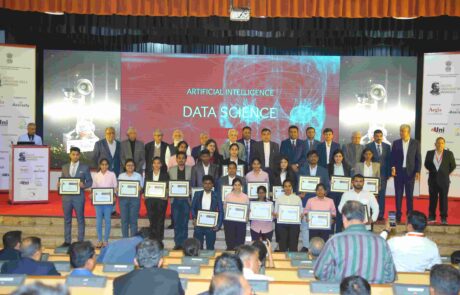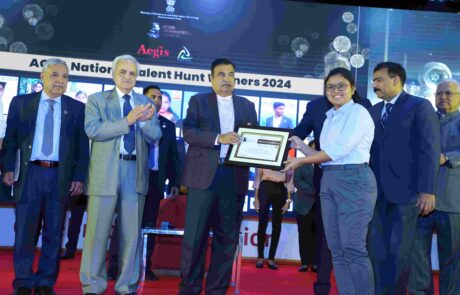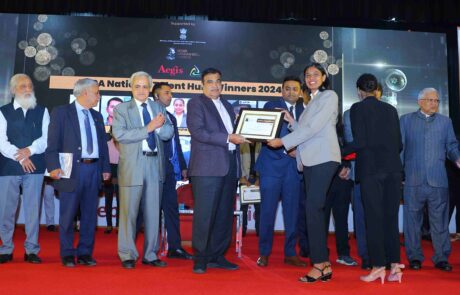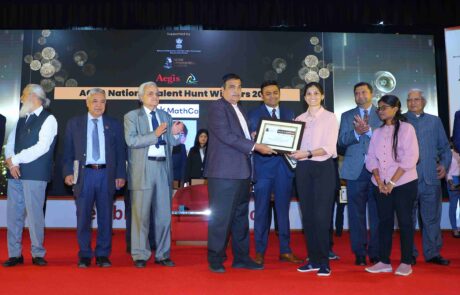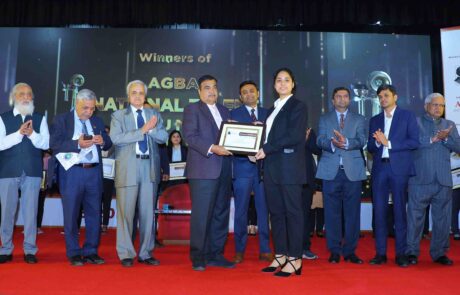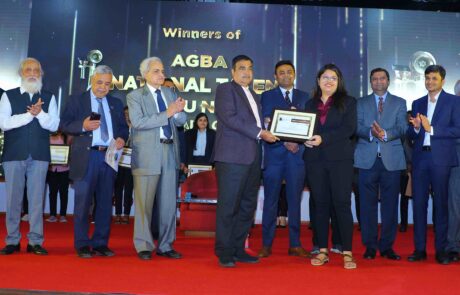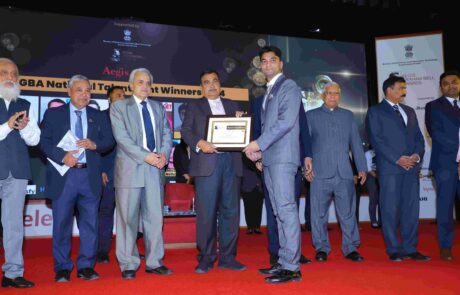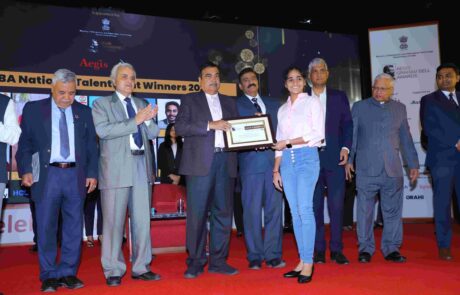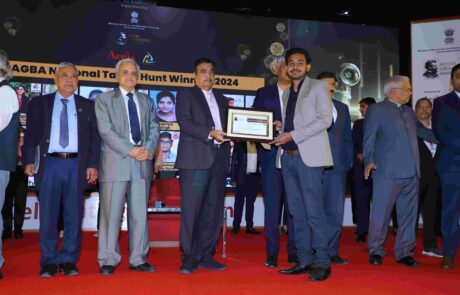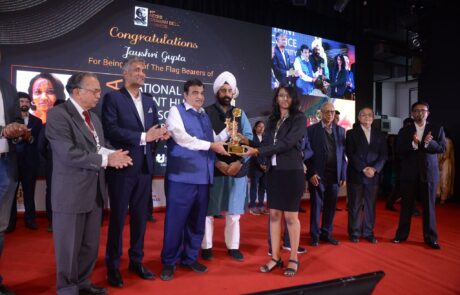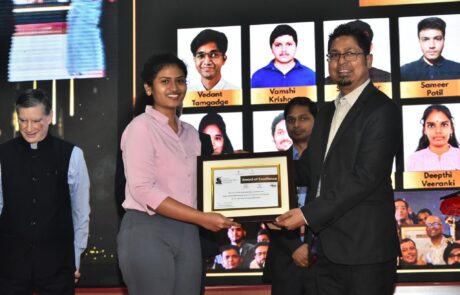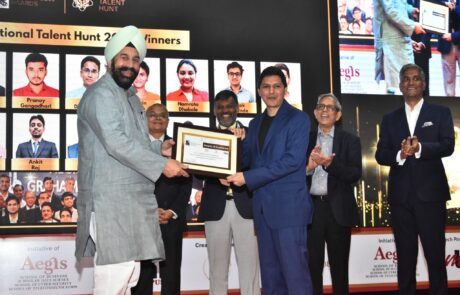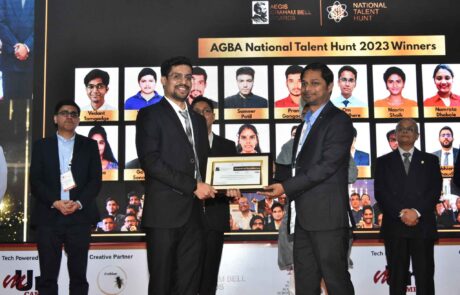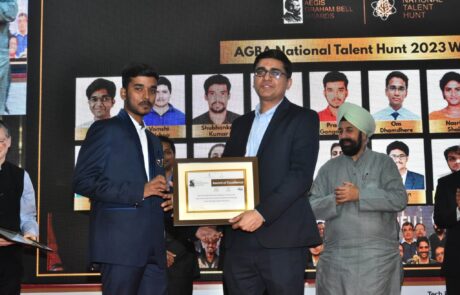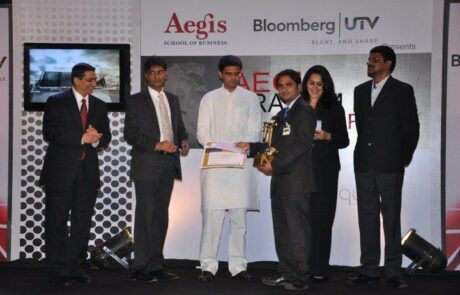Supported by
Call for Nominations: Agba Innovation Challenge
Transforming Mobile Phones into Computers
The Aegis Graham Bell Awards is proud to announce the Agba Innovation Challenge, an initiative dedicated to addressing the low penetration of laptops and computers in India and other developing countries. We invite innovators, technologists, entrepreneurs, and organizations to participate in this challenge by developing solutions MobileDock that convert mobile phones into fully functional computers with keyboards and monitors. This challenge is a significant step towards enhancing IT, computer, and AI literacy and education, thereby empowering individuals and communities through technology.
Background and Problem Statement
In today’s digital age, access to computers is no longer a luxury but a necessity. Computers are essential tools for education, skill development, and economic growth. However, in many developing countries, the penetration of laptops and desktop computers remains alarmingly low. In India, for example, a vast majority of the population, especially in rural areas, lacks access to personal computers due to high costs and limited availability. This digital divide hinders educational opportunities, restricts access to information, and limits economic development.
The Need for Innovation
Mobile phones, on the other hand, have seen widespread adoption even in the most remote regions. With millions of users, mobile phones offer a unique opportunity to bridge the digital gap. The Agba Innovation Challenge seeks to leverage this widespread mobile phone usage by transforming these devices into fully functional computers. By developing innovative solutions that convert mobile phones into computers with keyboards and monitors, we can make computing power accessible to everyone, regardless of their socioeconomic status.
Potential Impact
- Educational Empowerment: Providing students with affordable computing solutions will revolutionize education in developing countries. Students will have access to a wealth of online resources, enabling them to learn new skills and enhance their knowledge.
- Digital Literacy: As more individuals gain access to computers, digital literacy rates will improve. This will empower people to use technology effectively, opening up new opportunities for employment and personal development.
- Economic Growth: Enhancing digital skills in the population will lead to greater employability and the creation of new job opportunities. Small businesses and entrepreneurs will also benefit from access to digital tools, driving economic growth and innovation.
- Social Inclusion: Bridging the digital divide will promote social inclusion by providing equal opportunities for all, irrespective of their geographical location or economic background. This will help in building a more equitable and connected society.
Objectives of the Challenge
- Increase Accessibility: Develop cost-effective solutions to convert mobile phones into computers, making technology accessible to a broader population.
- Enhance Education: Promote computer and AI literacy by providing affordable computing solutions for educational institutions and students.
- Boost Economic Growth: Support the development of digital skills to enhance employability and drive economic growth in developing regions.
- Encourage Innovation: Foster a culture of innovation and entrepreneurship by challenging individuals and organizations to create transformative technologies.
How Individuals and Corporates Can Contribute
Individuals:
- Donations: Contribute to the reward fund, which will provide financial incentives for the best solutions. Every contribution, big or small, will help drive innovation.
- Mentorship: Offer your expertise and time to mentor participants, providing guidance on technical aspects, business development, and scalability of their solutions.
- Advocacy: Spread the word about the challenge through social media, community groups, and professional networks to attract more participants and supporters.
Corporates:
- Corporate Social Responsibility (CSR) Funds: Allocate CSR funds to support the challenge. These funds can be used for rewards, development grants, and scaling successful prototypes.
- Partnerships: Collaborate with the Agba Innovation Challenge to provide resources such as R&D support, manufacturing facilities, and distribution networks.
- Employee Engagement: Encourage your employees to participate as volunteers, mentors, or even competitors, leveraging their skills and expertise to drive the challenge forward.
- Innovation Sponsorship: Sponsor specific awards or categories within the challenge, such as the “Best Educational Solution” or “Most Scalable Solution,” to focus on areas aligned with your company’s mission.
Submission Requirements
Participants are required to submit the following:
- Concept Proposal: A detailed description of the solution, including the technology used, the user interface, and overall functionality.
- Prototype: A working prototype demonstrating the mobile phone’s ability to function as a computer.
- Feasibility Study: An analysis of the solution’s feasibility, including cost, scalability, and potential impact.
- Implementation Plan: A plan outlining how the solution can be implemented on a large scale, particularly in rural and underserved areas.
Evaluation Criteria
- Innovation: Originality and creativity of the solution for end-use Application for such repurposed Mobile Phones.
- Functionality: How well the mobile phone functions as a computer, including ease of use and reliability.
- Feasibility: Practicality of the solution in terms of cost, scalability, and implementation.
- Impact: Potential of the solution to improve IT, computer, skilling and AI literacy and education in developing regions.
Awards and Recognition
- Grand Prize: Cash award and a trophy
- Runner-Up: Cash award and a certificate
- Innovation Award: Special recognition for the most innovative solution
- Implementation Support: Opportunity to partner with organizations for large-scale deployment
How to Apply
- Register on the official tech partner mUni Campus Registration Link
- Submit your concept proposal by the specified deadline.
- Develop and submit your prototype.
- Await the evaluation and participate in the award ceremony.


